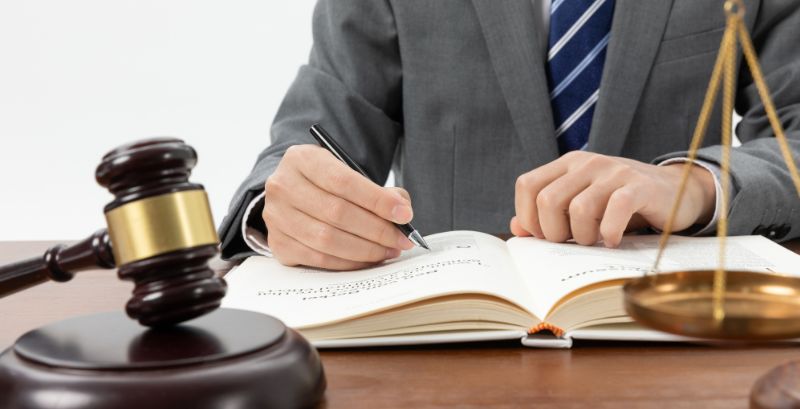If you’ve experienced an injury from an accident such as a car crash or a workplace incident, you might consider reaching out to personal injury attorneys. They can assist you in filing a claim against the person responsible.
By pursuing this legal action, you’ll have the opportunity to seek compensation for property damage, lost wages, medical expenses, pain and suffering, and other related damages. It’s a way to secure the support you need to recover from the incident and move forward.
While some personal injury cases are resolved through insurance settlements, others do end up going to trial. It’s important for you to understand what to anticipate if your claim takes this path.
Let’s explore what you can expect in such a situation.
Understanding the Key Components of a Personal Injury Claim
When a personal injury case reaches the court, it goes through several steps, each with its own significance.
One crucial phase is jury selection. In this process, a jury is carefully chosen and questioned by the judge.
Through a series of questions, the judge aims to understand their perspectives on different types of cases and gain insights into their personal backgrounds.
By questioning potential jurors, the judge can determine if they are suitable candidates and whether they harbor any biases that may affect their decision-making.
Once the jury is selected, it’s time for the trial to begin.
Personal injury trials kick off with opening statements, where both the prosecution and defense have the opportunity to present their case.
The personal injury attorneys representing the injured parties usually lead the way with their opening statement since they carry the burden of proof.
Demonstrating the Burden of Proof
To establish a strong claim against the responsible party, the claimant needs to clearly demonstrate the burden of proof.
Once the opening statements have been made, it’s time to present the evidence.
After that, personal injury attorneys often call upon witnesses to testify and support the evidence presented during the trial.
These witnesses can include individuals who witnessed the incident firsthand, doctors, financial experts, and even experts who can recreate the scene of the accident.
Once the claimant’s attorney has presented all the relevant evidence, it’s the defense’s turn to present their own case.
Defense attorneys have the chance to call forth witnesses and present supporting documents to counter the claimant’s argument.
After both sides have presented their evidence, an important phase begins: the cross-examination of witnesses. This gives each side an opportunity to question and challenge the testimony provided.
Once witnesses have been cross-examined, it’s time for both sides to make their closing arguments.
This is the last opportunity for the defense and plaintiff to sway the jury and seek a favorable outcome.
After the closing arguments, the jury retreats to a separate room for deliberation.
In personal injury cases, such as car accidents, deliberation often happens relatively quickly, although in certain instances, it may take several days.
After the jury reaches a verdict, they inform the judge, who then reveals the verdict to both parties involved.
The Role of Personal Injury Attorneys in the Courtroom
The role of personal injury attorneys in the courtroom is multi-faceted and complex, encompassing various aspects from legal counsel to negotiation and, ultimately, litigation.
- Duties Prior to Trial: Case Preparation
Before the courtroom proceedings, personal injury attorneys meticulously prepare their cases. This involves gathering and scrutinizing evidence, including medical records, accident reports, and witness testimonies, to build a compelling case.
They may also collaborate with experts in relevant fields, like medical professionals or accident reconstruction analysts, to strengthen their client’s case.
- Duties in the Courtroom: Representation and Advocacy
In the courtroom, personal injury attorneys represent their clients’ interests by presenting the case in a clear and compelling manner to the judge or jury.
They argue based on the evidence, interpret laws and precedents relevant to the case, and challenge the opposition’s arguments. This advocacy is crucial to ensuring their clients receive fair compensation for their injuries.
- Post-Trial Responsibilities: Enforcing Judgments
Upon achieving a favorable verdict, the personal injury attorney’s job does not end. They may need to enforce judgments, including tracking down assets or using liens and garnishments to ensure the client receives their awarded compensation.
In the End
Personal injury attorneys play a pivotal role throughout the legal process, providing expert counsel, aggressive advocacy, and diligent post-trial follow-up to protect their clients’ rights and interests.
FAQs
Question: What qualifies for a personal injury claim?
An injury qualifies for a personal injury claim when an individual suffers harm due to the negligence or intentional misconduct of another person, company, or entity.
Question: When do I need a personal injury lawyer?
You need a personal injury lawyer if you’ve been injured and it’s someone else’s fault, especially if the injury leads to significant medical expenses or loss of income.
Question: Should I be in the courtroom during my personal injury case?
While it often depends on the specifics of the case, your presence may be required for giving testimony. However, your lawyer can guide you on this based on your case details.
Question: Is there a time limit for filing a claim?
Yes, there are time limits, known as “statutes of limitations,” which vary depending on the type of claim and the state in which the injury occurred. Consulting a lawyer promptly is important to understand these timelines.
Keep Reading
Want more? Here are some other blog posts you might be interested in.




